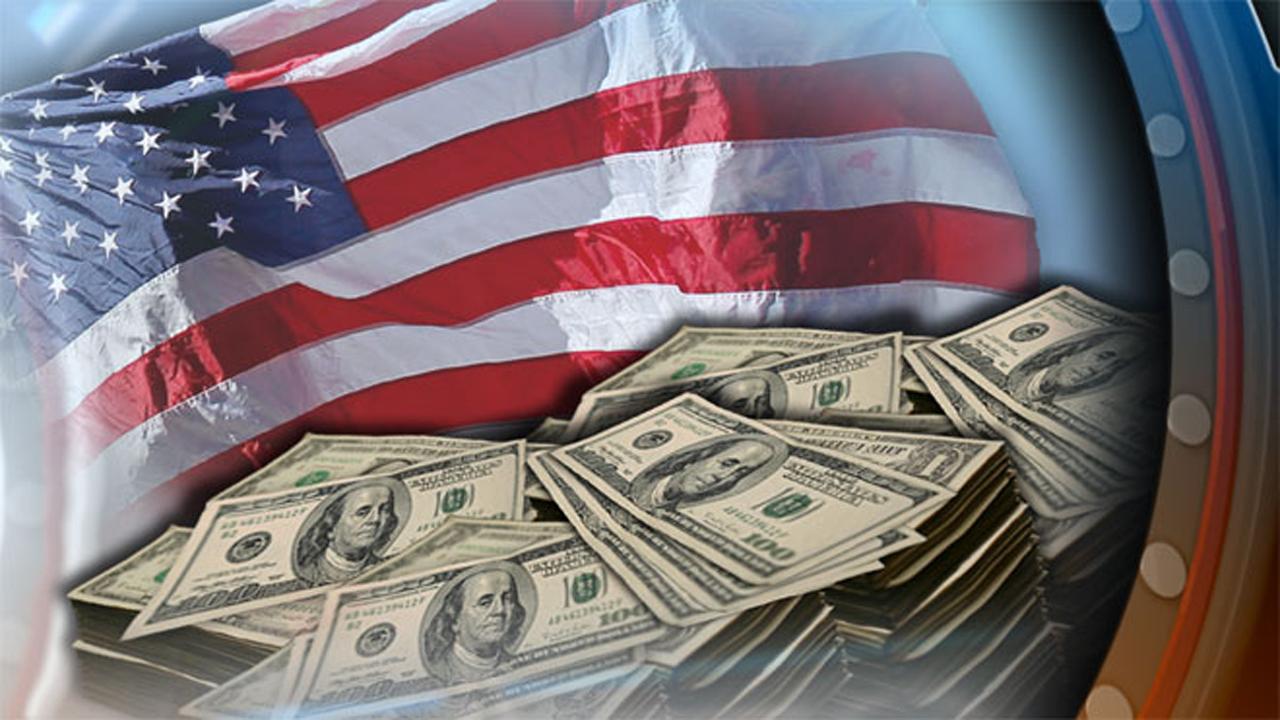Everything you need to know about the debt ceiling
This week, several members of President Trump’s cabinet, including Treasury Secretary Steven Mnuchin, met with top Congressional leaders on Capitol Hill to discuss the spending cap and debt ceiling, potentially trying to tackle the issue and secure a deal before a key deadline.
The U.S. is expected to hit the debt ceiling in early September, and establishing an agreement on spending levels could help Congress avert another government shutdown (even if the specifics of the deal haven’t been finalized) before the Sept. 30 deadline.
Democrats and Republicans are reportedly “not that far apart” from getting a deal, although some GOP legislators are pushing for increased defense spending. If both sides fail to reach an agreement, it could result in an interim spending bill in order to keep the government open.
During a two-day appearance on Capitol Hill this week, Federal Reserve Chairman Jerome Powell urged Congress to raise the debt ceiling, while warning that the U.S. was on an “unsustainable path in the sense that spending is growing faster than the economy.”
“It's essential that Congress raise the debt ceiling right away so the United States government can pay all of its bills when asked,” Powell said on Thursday before the Senate Finance Committee. “Any other outcome is unthinkable. We’ve always paid our bills, and it simply must happen that Congress raises the debt ceiling.”
But what is the debt ceiling, which is often used a political football – and how could it affect individual Americans if Congress fails to raise the cap?
The debt ceiling -- which is currently set at $20.46 trillion -- is the legal limit on the total amount of debt that the federal government can accrue; according to the Committee for a Responsible Federal Budget, it applies to both the $16.2 trillion held by the public, and the $5.9 trillion owed by the government.
If Congress is unable to increase the debt limit, the U.S. Treasury would enter uncharted territory, incapable of paying bills -- including payments to Social Security beneficiaries, government employees or service members -- since it would have no cash on hand.
Therefore, the federal government would have to temporarily default on some of its obligations, which could have serious and negative economic implications. Interest rates would likely spike, and demand for Treasuries would drop; even the threat of a default can cause borrowing costs to increase.
And if interest rates for Treasuries increase, expect interest rates across the country to rise, affecting car loans, credit cards, home mortgages, business investments and other costs of borrowing.
Many experts, however, believe that mass economic chaos from the U.S. defaulting on its debt is unlikely. Congress raises the ceiling when it needs to do so; since the creation of the debt limit in 1917, Congress has raised it 110 times.
“Even if extraordinary measures and Treasury cash on hand ran out, it still wouldn’t mean default,” Fisher Investments said in a recent RealClearMarkets editorial. “Default doesn’t mean delaying payments to vendors, Social Security or other supposed obligations. It is one thing and one thing only: failing to pay interest or repay principal on maturing debt.”
CLICK HERE TO GET THE FOX BUSINESS APP
Powell seemed to agree with that sentiment on Wednesday, while testifying before the House Financial Services Committee.
“I think down the road at some point, ultimately, there’s a price to pay here in higher rates,” he said. “That has to be true at some point, although Japan has far higher debt to GDP than we do, and far lower interest rates."




















